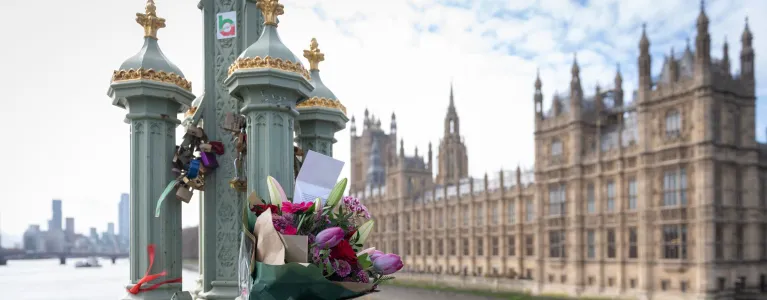
London’s emergency services are facing capacity pressures that could have a major impact on their ability to respond to a major terrorist incident.
The London Assembly Police and Crime Committee recognises that London’s blue light services have further improved how they work together to ensure they are ready to respond to any terror attack.
However, with both the Metropolitan Police Service and London Fire Brigade placed in a form of special measures, and the London Ambulance Service facing capacity pressures, it is crucial that all services continue to prioritise this vital work.
The Committee is urging for assurances to be sought by the Mayor from the London Ambulance Service that its contingency plans to treat casualties in the context of a major terrorist attack are realistic and deliverable.
The current threat to the UK from terrorism is ‘Substantial’, meaning that an attack is likely to happen. Terrorism remains a significant concern for Londoners and is a priority for the Mayor.
In 2016, the Mayor appointed Lord Harris of Haringey to conduct a “full and independent review to ensure London is as prepared as possible to respond to a major terrorist incident”.
In July 2021, Lord Harris was commissioned to undertake a second review in the context of the changing nature of the threat of terrorism. He made 294 recommendations in several key areas.
One-year on from this second major review into London’s preparedness for a terror attack, the Committee has today published a report with 12 recommendations to the Mayor, Mayor’s Office for Policing and Crime (MOPAC) and the Met.
The findings include:
- Progress has been made to further improve how blue-light services work together to prepare for and respond to a terror attack. The London Ambulance Service and London Fire Brigade are, however, facing significant pressures that could impede an effective response to a major incident.
- With extremist ideologies becoming increasingly diversified and complex, it is important to better understand which people are most at risk of radicalisation.
- Staffing pressures faced by prisons and the London Probation Service risk undermining efforts to manage the risk posed by terrorist offenders to the public, staff and others in contact with the criminal justice system.
- The Met faces significant challenges in recruiting and retaining digital specialists into counter-terror policing.
- MOPAC has not reviewed whether the original aims of the Met’s Basic Command Unit structure have been realised, as recommended by Lord Harris one year ago.
- More needs to be done to increase awareness of, and confidence in, Prevent as a key anti-radicalisation programme.
The recommendations include:
- The London Ambulance Service and the London Fire Brigade should provide a report on the progress they have made in implementing Lord Harris’ recommendations.
- The Mayor should seek assurance from the London Ambulance Service that its contingency plans to treat casualties in the context of a major terrorist attack are realistic and deliverable.
- MOPAC should work with the Met to conduct a review of the key risk factors for young people becoming radicalised.
- The Met should develop new partnerships with London universities and private-sector technology firms to establish secondment programmes for individuals with the digital skills required by a modern counter-terrorism operational response.
Chairman of the London Assembly Police and Crime Committee, Susan Hall AM, said:
“London’s blue light services are working hard to ensure they are ready in the awful event that another terror attack occurs in London.
“The failures identified in the emergency services response to the Manchester Arena attack have shown just how important it is to be prepared to respond rapidly and effectively.
“We recognise the significant pressures facing our emergency services and we are concerned that this could hinder an effective response to a major incident.
“Because of this, we want the London Ambulance Service and the London Fire Brigade to update us on the progress they have made in implementing Lord Harris’ recommendations.
“We are also urging the Mayor to seek assurances from the London Ambulance Service that its plans in the context of a major terrorist attack are realistic and deliverable, considering the strain it is currently facing.
“Prevent also plays a key role in London’s anti-terrorism strategy. Its resources must be targeted at those at risk of becoming terrorists to stop future attacks.”
Counter-terrorism and radicalisation Report
Notes to editors
- The report is attached.
- Susan Hall AM, Chairman of the Police and Crime Committee, is available for interview.
- Find out more about the work of the Police and Crime Committee.
- As well as investigating issues that matter to Londoners, the London Assembly acts as a check and a balance on the Mayor.
For more information, please contact Emma Bowden in the Assembly Media Office on 07849 303897. For out of hours media enquiries please call 020 7983 4000 and ask for the Assembly duty press officer.